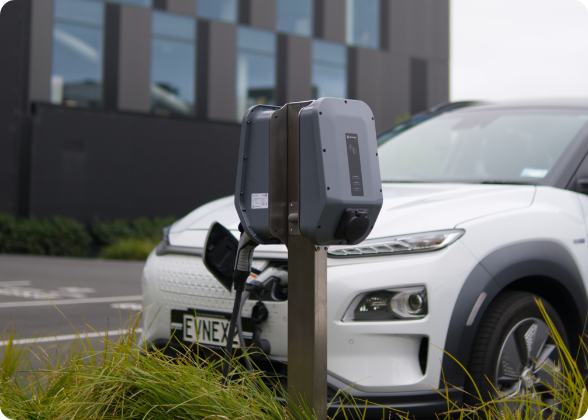In the past, electric vehicle chargers have been a major point of contention for owners of electric vehicles. Many car manufacturers have had their own type of charger that is only compatible with their cars, and until recently, most public charging stations were station-specific. The past few years, however, have seen electric vehicle chargers becoming more widely used and more widely available. A major change has been the proliferation of fast-charging stations, both through the use of in-home units and through these chargers being available to the public.
How do you charge an EV at home?
There are two approaches you can take to charge your EV at home. In the simplest and most common of the two, it is plugged into a smart charging station. The other approach is to use a standard household power outlet however, this option will take longer than 24 hours to charge your EV.
How long does it take to recharge an EV at home?
There are two main factors that determine how fast the electric vehicle will charge, firstly the speed of the charging station, but also the maximum supported charging speed of the EV itself. For example, a 2014 Nissan Leaf only supports a maximum charging speed of 3.7kW, even if plugged into a 7.4kW charging station.
Most vehicles have two charging sockets, one for AC charging at home or the workplace, and one for DC charging at high speed charging stations. Each of these charging sockets can vary depending on the market the vehicle was manufactured for.
AC charging sockets are the most common form of socket found on all electric vehicles. They accept standard household 240V AC electricity with a maximum output of 25kW, and can be used at home or at work for charging the batteries.
AC – Slow to medium speed
AC charging stations deliver mains AC current to the vehicle, requiring the vehicle’s on-board charger to rectify the AC current to DC and manage the charging process.
DC – Fast to rapid speed
DC charging stations deliver high voltage DC current directly to the vehicle battery, bypassing the vehicle’s on-board charger.
How long to charge an Electric Car?
| Type of Charger | Speed | Range added per hour | Charging Time |
|---|---|---|---|
| 8 amp portable charger | 1.5kW | 10km | 35 hours |
| AC single-phase | 7.4kW | 40km | 9 hours |
| AC three-phase | 22kW | 120km | 3 hours |
| DC medium | 25kW | 150km | 1.5 hours (to 80%) |
| DC rapid | 50kW | 300km | 1 hour (to 80%) |
| DC ultra-rapid | 175kW | 300km | 15 min (to 80%) |
What is the cost to charge an Electric Car in Australia?
The average cost of electricity in Australia is $0.30c per kW. To cover 100km, this would cost you an average $5.40c on the standard tariff, with figures decreasing on lower tariffs. In comparison, according to the Australian Bureau of Statistics, it will cost an average $16.65 to travel 100km with unleaded petrol in your tank and $7.50 per 100km with diesel.
What is the cost of Installing an EV charger?
The cost to install an EV charging station will vary depending on the type of charger you choose. There are three main types of chargers to consider: Mode 2, Mode 3, and Mode 4. A Mode 2 charger is just simply a 240-volt outlet. A Mode 3 charger is an AC charger usually 7kW for single phase and 22kW for 3 phase power supplies. AC charging stations deliver mains AC current to the vehicle, requiring the vehicle’s on-board charger to rectify the AC current to DC and manage the charging process. A Mode 4 Charger is a DC fast to rapid charger. DC Charging stations deliver high voltage DC current to the vehicle battery bypassing the vehicle’s on-board charger.


